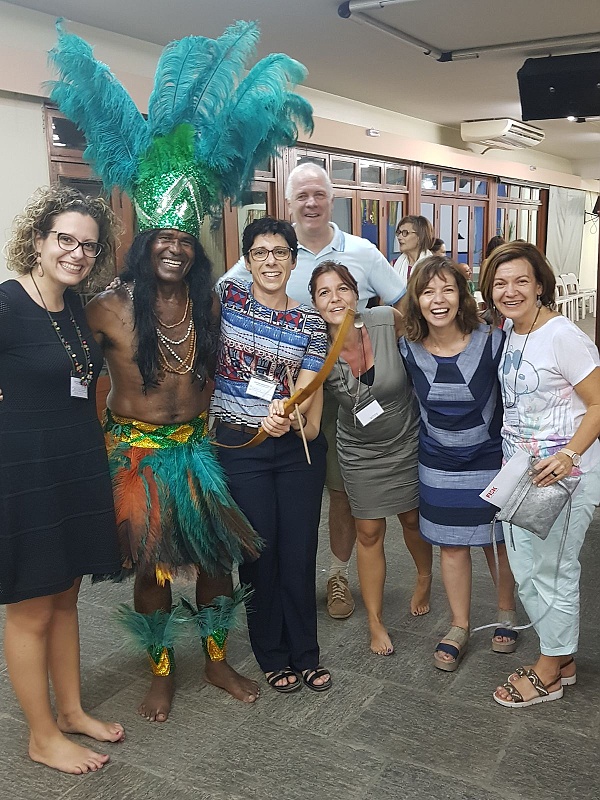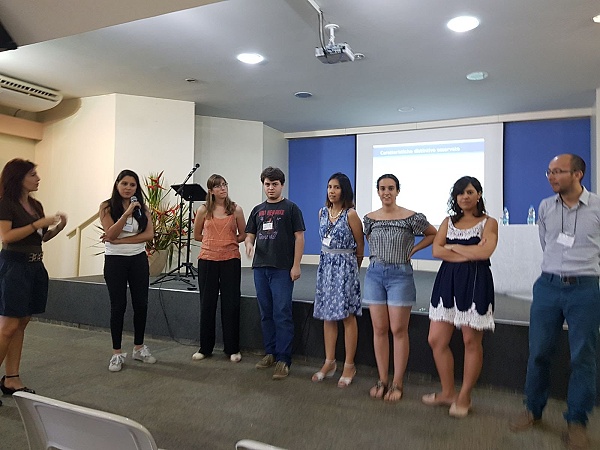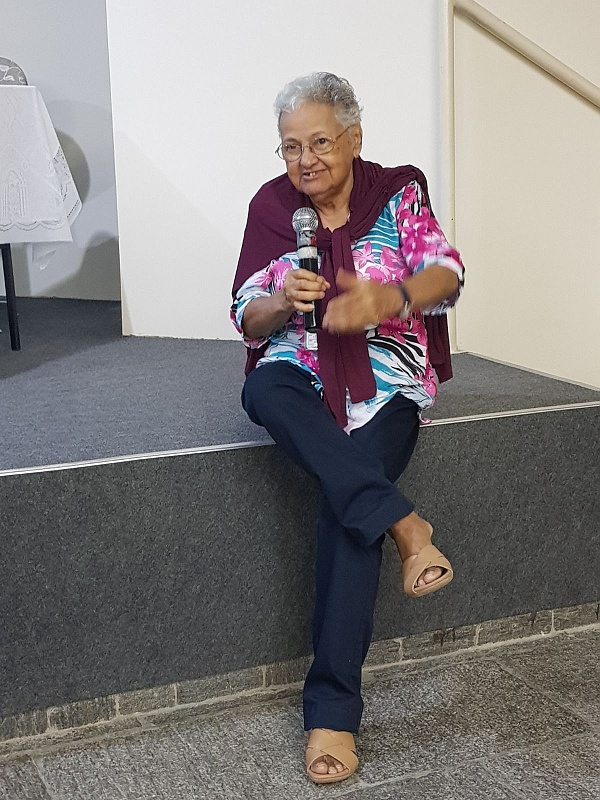 A warm summer atmosphere of the Southern Hemisphere was the framework of an encounter with the sociology of Latin America, which some of the participants described as “dazzling”. Every time we love, every time we give, it’s Christmas, claims the book “Love in the Time of Globalization”, written by Social-One Secretary, Silvia Cataldi, researcher at La Sapienza University of Rome, along with Vera Araujo and Gennaro Iorio who wrote Toward a new conception of sociology (Città Nuova, 2015). Sociologists pondered that same agape dimension during study sessions and in workshops.
A warm summer atmosphere of the Southern Hemisphere was the framework of an encounter with the sociology of Latin America, which some of the participants described as “dazzling”. Every time we love, every time we give, it’s Christmas, claims the book “Love in the Time of Globalization”, written by Social-One Secretary, Silvia Cataldi, researcher at La Sapienza University of Rome, along with Vera Araujo and Gennaro Iorio who wrote Toward a new conception of sociology (Città Nuova, 2015). Sociologists pondered that same agape dimension during study sessions and in workshops.
 One Brazilian student and social worker commented: “The summer school was a confirmation for me of the importance of interdisciplinary approaches. I’m a social worker in contact with suffering people who have had their human dignity taken away. A new understanding of what it means to be a human person generates new practices that can activate dormant aspects of human nature.” A professor from Recife: “Agape is not only a sociological concept, but crosses over into the fields of philosophy and metaphysics. I saw that love is at work in your group too. From this standpoint, a loving and generous dialogue has been started.” Giuseppe Pellegrini, from the University of Padua: “The encounter with the Latin American culture is always enriching. For me, it’s a way to know my own country better. The need of testing our categories and concepts, the ability to read the social reality and its changes were some of the most stimulating elements I found here. At a distance of thirty years from my first experience in Brazil, I felt the same vibrations, the same energy that animates this very diverse people in the ways of manifesting communitarian life. The effort put forth by so many people that live according to the ideal of Chiara Lubich has produced genuine and respectable fruits in Latin American life. Agapic behavior is one manifestation of mutual love, a generative and contagious element, both theoretical and practical, at a level that is capable of influencing social, cultural and political change.” The next step for Social-One will be a conference on the 7th and 8th of June at the Italian University of Salerno, Italy. The continuing dialogue with contemporary sociology, but also to host a “social” Expo of best practices of associations and institutes that work in the field of society.
One Brazilian student and social worker commented: “The summer school was a confirmation for me of the importance of interdisciplinary approaches. I’m a social worker in contact with suffering people who have had their human dignity taken away. A new understanding of what it means to be a human person generates new practices that can activate dormant aspects of human nature.” A professor from Recife: “Agape is not only a sociological concept, but crosses over into the fields of philosophy and metaphysics. I saw that love is at work in your group too. From this standpoint, a loving and generous dialogue has been started.” Giuseppe Pellegrini, from the University of Padua: “The encounter with the Latin American culture is always enriching. For me, it’s a way to know my own country better. The need of testing our categories and concepts, the ability to read the social reality and its changes were some of the most stimulating elements I found here. At a distance of thirty years from my first experience in Brazil, I felt the same vibrations, the same energy that animates this very diverse people in the ways of manifesting communitarian life. The effort put forth by so many people that live according to the ideal of Chiara Lubich has produced genuine and respectable fruits in Latin American life. Agapic behavior is one manifestation of mutual love, a generative and contagious element, both theoretical and practical, at a level that is capable of influencing social, cultural and political change.” The next step for Social-One will be a conference on the 7th and 8th of June at the Italian University of Salerno, Italy. The continuing dialogue with contemporary sociology, but also to host a “social” Expo of best practices of associations and institutes that work in the field of society.





0 Comments